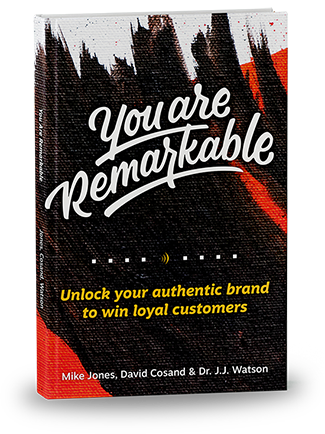Podcast: Play in new window | Download
Subscribe: RSS
Your culture can be venomous or strong, but not both. We don’t like venomous cultures because they’re dehumanizing. We’re right to call them “wrong.” But those cultures reflect human nature; the path of least resistance. You have to rise above them purposely, and it doesn’t happen by accident. So how do you create a powerful culture where ideas work and people grow? Let’s talk about it.
Pop Culture Is Not Your Friend
Following pop culture won’t just destroy your originality and honesty; it will destroy your soul. It doesn’t know what “morality” means, and you can’t trust it for direction. Instead, know truth for yourself. Truth doesn’t come from our fickle preferences about morality; it’s the other way around.
Today’s culture is pushing back against honesty, and it’s pushing hard. It wants you to become confused about right and wrong and blur decisions. No longer do you have to deal with traditional bullying, but now you have guilt-bullying. And if you can be made to reward that bullying (by allowing it to be successful), you will allow a toxic culture to emerge.
The book of Proverbs discourages exactly this kind of management. It says it this way: “If a ruler listens to falsehood, all his officials will be wicked.” Proverbs 29:12 ESV
According to that ancient wisdom, if you listen to liars, it’s the liars who gain power. So since the antidote must be truth, how do you set truth and accountability as the standard in your operations?
1) Build a falsifiable identity.
How do you build a culture free from lies? You expose the lies by making them easy to test. And you do that by defining things. And the heart of this is defining your values, so you can test each decision — from anyone — by the extent to which it corresponds with those well-defined values.
Remember that it’s truth — not hidden, obscure, untested ideas — that provide a clear foundation for honest, hard-working, smart people to thrive. Unclear goals and rules in a company create toxicity, since those in power are the judges of right and wrong, and they haven’t told the rest of us how they’re making decisions. No accountability. And everyone suffers.
Falsifiable brand values clarify. They make it obvious when the company isn’t living them out. Anyone can question it: an employee, a vendor, a customer. Now you have accountability everywhere, keeping you honest and making you a better company.
2) Stop Lying about Processes
We’ve all been there: we create a process or policy only to fail in its implementation. But if people lose faith in your commitment to creating a process to solve a problem, your next policy will be white noise. Not taken seriously.
To solve this, focus on the problem you’re solving. And make sure it’s clear to everyone. If you don’t do this, it’s easy for people to become cynical, thinking you have ulterior motives you’re not sharing with them. If you bully your way to the solution you want, they just think you have some selfish reason — a reason you don’t want to share — for choosing that solution. And they won’t participate in problem solving because they don’t know what the actual goal (your hidden goal) is.
Instead, share the actual goal. Try a little transparency. Why not even give a few trusted employees a seat at the table to comment on the process? Take it a step further; ask them to create the process.
- Then roll the process out to the team and put it into someone’s hands to manage.
- Then let them know they can make changes. Let them know you’ll check in with them.
- Check in a week and then a month later to make sure it’s being used. If it’s not, or if it’s not going well, adjust it.
Because it’s not important to stick to the process; but it’s important to stick to your commitment to solving the problem.
3) Reward Good, and Punish Evil
Reward honesty and good intentions. If people earn trust, give them more responsibility. If they cause problems, tell them they’re causing problems (one way or another). Not sure how to do this? Get with your fellow leaders and make a template for giving feedback.
For more on this, Resound uses principles from “The Effective Manager” to communicate with and manage employees.
Reward Honesty
As a leader, you choose whether your culture is venomous or strong, dehumanizing or rewarding — fighting with each other or fighting for the success of the company. Through your ability to solidify clear values, establish action through processes and rewarding good (and pushing evil), you can create a culture that’s serious about service, is more selfless and that rewards and grows people.



